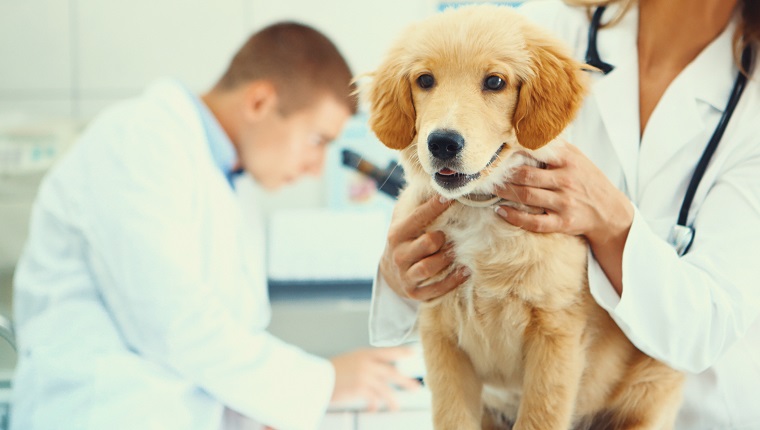(Picture Credit: London Scientific Films/Getty Images)
Hookworm in dogs is a condition where intestinal parasites enter the digestive tract and small intestine. The hookworms then proceed to feed on the dog’s blood.
A dog usually becomes infected with hookworms either by ingesting them orally or through the skin. Eating the feces of another infected animal is one way that a dog might pick up hookworms along with consuming infected food. In some cases, pregnant dogs can pass hookworm on to their litter.
It’s a common condition that normally affects younger dogs and puppies more severely than fully grown adult dogs. Luckily, the condition is treatable, and it can also be avoided by taking preventative measures.
If you see signs of infection in your dog, then you must consult your veterinarian for a proper diagnosis and course of treatment. Here’s what you should know about the symptoms, causes, and treatments for hookworm in dogs.
Symptoms Of Hookworm In Dogs
Hookworm in dogs is a condition that can present itself in a number of ways.
Some of the most common symptoms that appear in dogs include:
- General weakness and lethargy
- Weight loss
- Diarrhea or poop with blood present in it
- Paler looking gums
- Anemia
Causes Of Hookworm In Dogs

(Picture Credit: gilaxia/Getty Images)
The cause of hookworm in dogs is an intestinal parasite that uses part of their hook-style mouth to latch on to the intestinal wall’s lining. The hookworms then proceed to feed on the blood of the dog.
There are a few different types of hookworms, which often vary depending on where the dog lives.
Treatments For Hookworm In Dogs
If your veterinarian suspects your dog is suffering from hookworm, they’ll request a stool sample that they can analyze and look for eggs. Once your vet confirms the diagnosis, they’ll usually prescribe a type of medicine known as an anthelmintic. Administered orally, this medicine will kill the adult hookworms.
If your vet prescribes medicine for your dog, it’s important to follow the dosage instructions accurately and complete the full course of treatment.
Practicing good hygiene can help prevent the condition. Always dispose of your dog’s feces quickly and cleanly, and learn to avoid the droppings of any other dogs or animals. It’s also a good idea to avoid letting your dog play around any other dogs who’ve recently been diagnosed with a case of hookworm.
Has your dog ever had a case of hookworm? How did you get rid of the infection? Tell us all about it in the comments below.